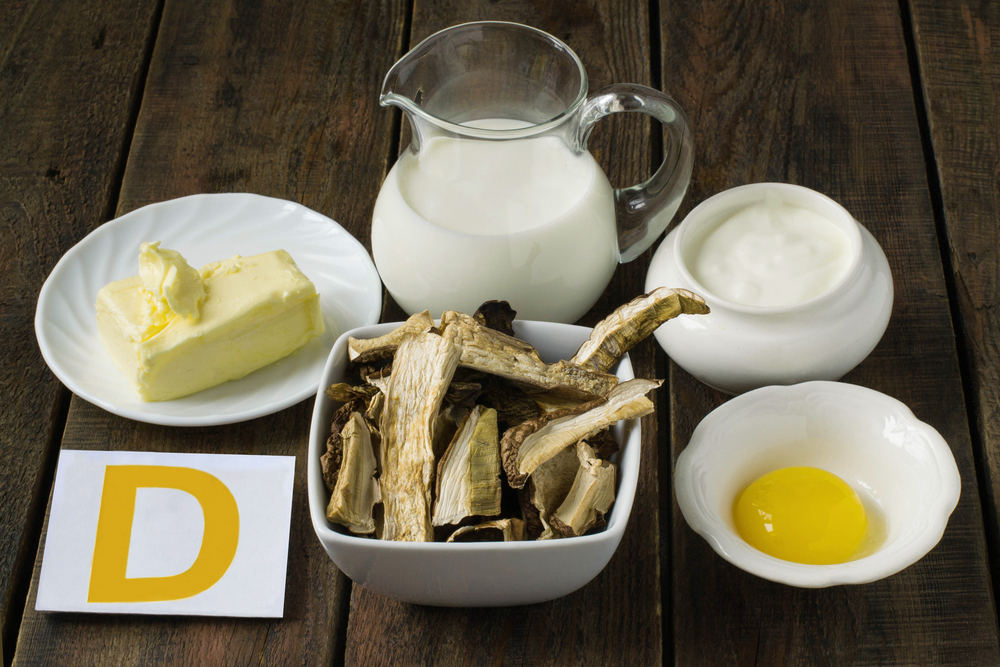We all understand that having strong bone health is a crucial foundation to ensure basic life activities and physical needs. No one wants their life to be hindered by painful or creaky joints every time they move. Calcium is the main component of bones and teeth, helping to build strength, while vitamin D plays a vital role in supporting calcium absorption from food into the body.
However, not everyone gets enough of these two essential nutrients from their daily diet, so supplementing with vitamin D and calcium is necessary to protect bone health, especially for the elderly and postmenopausal women.
Key Takeaways
- Calcium and vitamin D are essential nutrients for strong bones.
- Calcium and vitamin D deficiencies can lead to osteoporosis and increase the risk of fractures.
- The primary sources of calcium are dairy products and green vegetables, while vitamin D mainly comes from sunlight and supplements.
Role And Importance Of Calcium
Calcium is an important mineral that helps form and maintain strong bones, especially for children, teenagers in their growth period, and adults. It not only plays a role in maintaining healthy bones as we age but also helps develop strong bones.
A prolonged calcium deficiency can lead to osteoporosis, a condition that makes bones brittle and more prone to fractures. Postmenopausal women are among those at highest risk for osteoporosis due to the sudden decline in estrogen, which reduces the body’s ability to absorb calcium.

Importance Of Vitamin D
Vitamin D acts as a transporter, helping calcium to be effectively absorbed and deposited into bones, facilitating bone growth and maintenance. Without sufficient vitamin D, the body cannot properly utilize calcium from the diet, leading to bone issues.
Prolonged vitamin D deficiency can cause soft, fragile bones and conditions like rickets in children. Therefore, vitamin D supplementation is particularly important during the winter months when sunlight exposure is limited.
Sources Of Calcium And Vitamin D
Foods Contain Calcium
Rich sources of calcium include:
- Dairy products: Fresh milk, cheese, and yogurt are the richest and most easily absorbed sources of calcium.
- Green vegetables like kale and spinach are also calcium-rich and suitable for vegetarians.
- Legumes such as soybeans and black beans provide a significant amount of calcium.
- Additionally, oranges and breakfast cereals also provide abundant calcium for the body.
Foods Contains Vitamin D
Rich sources of vitamin D include:
- Sunlight: A highly effective way to synthesize vitamin D.
- Fatty fish like salmon and tuna are great food sources of vitamin D.
- Eggs, especially egg yolks, contain sufficient amounts of vitamin D that can be incorporated into daily meals.
- In addition, supplements are an easily accessible source of vitamin D for everyone.
Recommended Intakes Of Calcium And Vitamin D
Studies suggest: “Depending on age, gender, and health status, the required amounts of calcium and vitamin D will differ. Health experts generally recommend adults consume about 1,000 mg of calcium daily, while the elderly and postmenopausal women need about 1,200 mg. Vitamin D intake should be between 600-800 IU/day or as directed by a doctor if higher supplementation is needed.”

Benefits Of Calcium And Vitamin D Beyond Bone Health
Other Benefits Of Calcium
- Supports muscle function: Calcium helps prevent muscle cramps, making muscles function more effectively.
- Additionally, some suggest that calcium has a role in regulating blood sugar, helping to reduce the risk of type 2 diabetes.
Other Benefits Of Vitamin D
- Vitamin D, along with other necessary vitamins, boosts the immune system to fight off illnesses.
- Reduces the risk of cancer, especially those related to the digestive tract, such as stomach cancer, colon cancer, duodenal cancer, and breast cancer.
- Improves overall brain function and the motor-nervous system.
Considerations For Supplementation Of Calcium And Vitamin D
If you cannot meet your calcium and vitamin D needs from daily food, consult healthcare professionals to create a plan for necessary supplementation. They can help you adjust the appropriate dosage, reducing the risks and consequences of overdose, especially for those who may be dealing with kidney function decline or other heart-related conditions that could be affected by calcium and vitamin D intake.

Precautions And Risks When Taking Calcium And Vitamin D
Although vitamin D and Calcium are essential substances for the body, excessive intake or improper absorption of calcium and vitamin D can cause certain health problems. Among them are:
- Dermatological problems: When exposed to unprotected sunlight to absorb vitamin D for too long, especially in areas near the equator, it will easily cause serious skin damage. Can recover.
- Kidney stones due to excess calcium: Because calcium is a substance that can be stoned by absorbing more than necessary, you are at risk of getting kidney stones due to consuming too much calcium.
In addition, there will be unforeseen health problems depending on each person’s physical condition. Therefore, pay attention while supplementing your body with vitamin D and calcium so you can make timely adjustments!
FAQs
What Foods Contain Calcium And Vitamin D?
Calcium-rich foods include milk, cheese, and green vegetables, while fatty fish and eggs provide vitamin D. Sunlight also helps the body synthesize vitamin D naturally. You can refer to the foods mentioned earlier in this article.
How Much Calcium And Vitamin D Should You Take If You Have Osteopenia?
Generally, if you have osteoporosis or are in the pre-osteoporosis stage, your doctor may recommend 1,200 mg of calcium and 800-1,000 IU of vitamin D daily to protect your bones.
Conclusion
In conclusion, supplementing calcium and vitamin D not only helps maintain strong bones but also offers many other health benefits. Therefore, adding these two essential nutrients to your diet is very necessary. However, using supplements to ensure adequate intake should be done carefully and according to expert guidance to ensure optimal effectiveness and avoid unwanted side effects.



